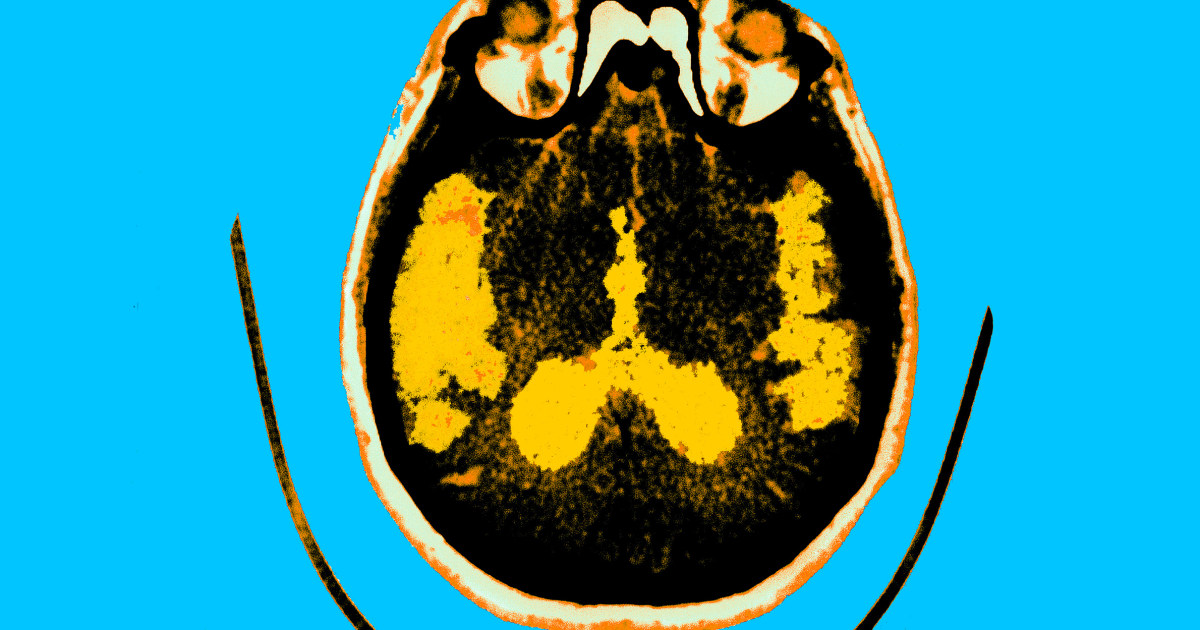Enlarge image
Memory test: A 55-year-old man undergoes a brain health test and awareness program at the Brain Health Clinic in Jayanagar General Hospital (Bangalore) to commemorate World Alzheimer's Day on September 21.The The motto of World Alzheimer's Day this year was "Know Dementia, Know Alzheimer's".
Photo: JAGADEESH NV / EPA
The US biotech group Biogen and its Japanese partner Eisai are raising hopes for a new Alzheimer's drug with study data.
In a large study with patients in the early stages of the disease, the drug lecanemab was able to significantly slow down the cognitive and functional decline - a rare success in Alzheimer's research, in which there are numerous failed drug projects.
In the pivotal phase 3 clinical trial, lecanemab slowed disease progression by 27 percent compared to a placebo.
The main objective of the study was thus achieved.
The two companies are now hoping for US approval for the drug early next year.
Approval in Japan and Europe is also to be applied for.
Biogen shares are up 44 percent premarket in the US and Europe, while Eisai shares are up more than 60 percent.
Other pharmaceutical stocks also rose significantly.
"When you can slow down a disease by almost 30 percent, that's fantastic. That's what we were looking for," said neurologist Jeff Cummings of the University of Nevada Las Vegas.
Ronald Petersen of the Mayo Clinic in Minnesota said the effect, while not large, was positive.
Eisai said the results of the study, which involved nearly 1,800 patients, support the long-held theory that removing deposits of the protein beta-amyloid from the brains of people with early-onset Alzheimer's disease can delay the progression of the disease.
The data on lecanemab point to a "potential new multi-billion dollar deal," said Jefferies analyst Michael Yee.
Positive comments also from other experts: Matthew Harrison from Morgan Stanley spoke of a "clear victory" for Biogen.
His colleagues at analyst firms Mizuho, Baird and BMO Capital Markets promptly upgraded Biogen's stock.
Morgan Stanley analyst Terence Flynn now also sees an increasing likelihood of success for Eli Lilly's Alzheimer's drug
donanemab
.
Keyur Parekh from Goldman Sachs draws positive conclusions for the development of Alzheimer's at Roche, Morphosys and Lonza from the study data.
"Potential new multi-billion dollar deal"
Like the two partners' Alzheimer's drug Aduhelm, lecanemab
is an antibody that is to be administered intravenously and is intended to remove amyloid deposits.
Unlike Aduhelm, lecanemab targets forms of amyloid that have not yet clumped together.
Aduhelm was the first new Alzheimer's drug to hit the market in the past 20 years, after a long line of industry failures.
However, its approval in the USA is controversial.
There, the FDA had given the green light, although an advisory board had previously spoken out against it.
Morphosys, Eli Lilly and Roche stocks are also rallying
In the wake of the news and price increases at Biogen and Eisai, other pharmaceutical stocks also jumped.
The courses of Morphosys and Roche as well as Eli Lilly climbed in double digits.
The reason: In addition to the Biogen/Eisai duo, Morphosys and Roche are also struggling with the active substance gantenerumab and Eli Lilly with donanemab for an effective drug against Alzheimer's.
The papers of the German antibody specialist Morphosys rose by more than 21 percent at times on Wednesday.
The share certificates of the Swiss partner Roche increased in price by 5.7 percent.
Eli Lilly hit a record high in premarket US trading, up more than 8 percent.
Biogen shares shot up as much as 51 percent in premarket US trading.
The shares of the Swedish Eisai development partner BioArctic AB were even catapulted upwards by 134 percent.
Alzheimer's research has had a number of failures
Since then, business with Aduhelm has been sluggish.
According to the FDA, the clinical studies with the agent showed a significant reduction in deposits.
However, some patients developed potentially dangerous brain swelling.
Other experts were skeptical as to whether Aduhelm could really slow down cognitive decline.
In the study of lecanemab, the rate of brain swelling was 12.5 percent in the group receiving the drug versus 1.7 percent in the placebo group.
However, in many cases there were no symptoms, with symptomatic brain swelling observed in 2.8 percent of patients in the lecanemab group.
Mayo Clinic neurologist Petersen said the rate of side effects was much lower than with Aduhelm and "certainly tolerable."
Numerous pharmaceutical companies have already had to cope with failures in Alzheimer's research, and Roche's crenezumab antibody recently failed in a clinical study.
Almost 50 million people worldwide suffer from dementia and ten million new diseases are diagnosed every year.
Alzheimer's is the most common form of the disease.
rei/Reuters/DPA




/cloudfront-eu-central-1.images.arcpublishing.com/prisa/65WJB3EG45EZDLAF5QNRLPUDDU.jpg)






/cloudfront-eu-central-1.images.arcpublishing.com/prisa/KMEYMJKESBAZBE4MRBAM4TGHIQ.jpg)


